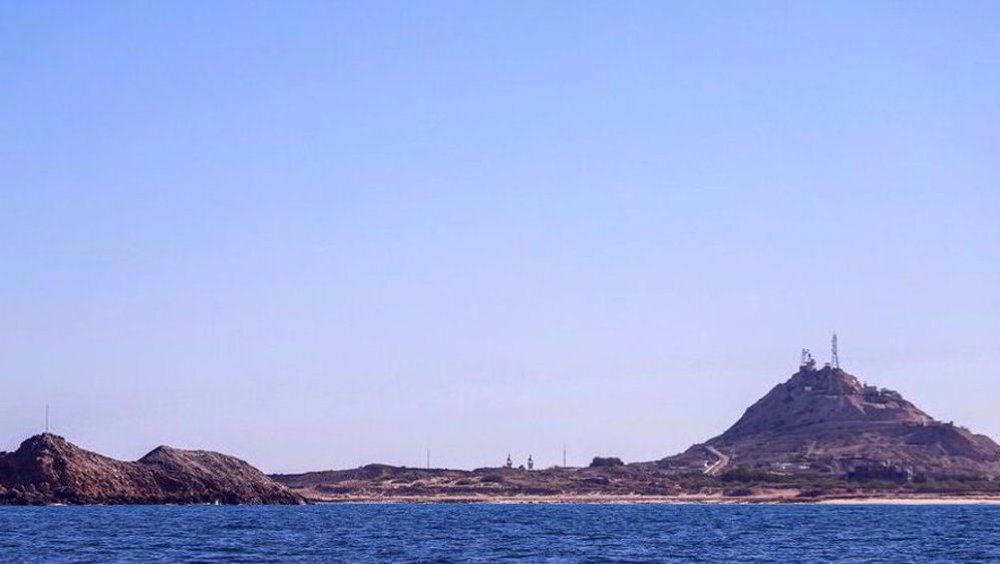Aimless debates, circular arguments, or diverting from public concerns

TEHRAN – On Wednesday, October 16, 2024, the European Union and the Persian Gulf Cooperation Council (GCC) issued a joint statement at the conclusion of their meeting in Brussels, calling on the Islamic Republic of Iran to end its occupation of disputed islands in the Persian Gulf.
The statement read: "We urge the Islamic Republic of Iran to end its occupation of the three islands belonging to the United Arab Emirates—Greater Tunb, Lesser Tunb, and Abu Musa—as this constitutes a violation of UAE sovereignty and the principles of the United Nations Charter."
In response to these repeated claims, Dr. Baqaei, spokesperson for Iran's Foreign Ministry, stated: "The three islands of Abu Musa, Greater Tunb, and Lesser Tunb are an inseparable part of Iran's territory and will remain so. Misleading terms or the repetition of false claims about this critical part of Iranian land do not change the reality." He emphasized that Iran, while respecting the UN Charter and principles of good neighborliness, will continue to exercise its full national sovereignty over these islands.
Dr. Baqaei also expressed disappointment that some regional countries, instead of addressing the most pressing issue facing the Islamic world, the region, and the world today—the ongoing genocide of the Palestinian people and the Zionist regime’s aggression in Lebanon—are raising unfounded territorial disputes. He noted that the joint meeting with EU member countries, many of which are the main arm suppliers for the Zionist regime and its primary political supporters, could have been used to hold these countries accountable for supporting Israel’s apartheid regime and its actions, rather than diverting attention to false territorial claims.
He further highlighted Iran’s defense capabilities, describing them as essential for maintaining the country's right to self-defense and deterring threats from hostile and aggressive forces. These capabilities, he stressed, also help preserve regional stability and security. Dr. Baqaei reiterated that Iran, in line with international law and the UN Charter, has always used its military power responsibly, strictly for defensive purposes.
Addressing concerns about Iran’s nuclear program, Dr. Baqaei reaffirmed that its activities are entirely peaceful, dismissing any doubts as biased and baseless. He reminded European countries that they are also to blame for the failure to implement the Joint Comprehensive Plan of Action (JCPOA) due to their inaction and inability to counter U.S. pressure during Trump's presidency.
The Foreign Ministry spokesperson also pointed to the critical situation in the region, particularly the ongoing genocide and aggressions in Gaza and Lebanon. He urged regional countries to focus on the immediate priority of stopping the killing of innocent people and the destruction of infrastructure in these areas, and called for collective action to halt the Zionist regime’s war-mongering.
A key point to consider is that the European Union, rather than addressing the extensive and ongoing crimes committed by the Israeli regime in Gaza, the West Bank, Lebanon, Syria, and Yemen over the past year—with the direct, daily supply of arms and consistent financial and political support from the West—seems more focused on diverting public attention. Instead of questioning the well-established historical and legal sovereignty of the Islamic Republic of Iran over the Persian Gulf islands, the EU would do better to focus on resolving territorial disputes within its own region.
European analysts and researchers continue to ask a critical question: Why does Brussels, instead of addressing the 300-year-old territorial dispute between Britain and Spain over Gibraltar, which lies within Spanish territory and occupied by UK, choose to spend European taxpayers' money on illegal and futile issues, such as the Iranian islands, where Iran's sovereignty is clearly established?
Likewise, the occupation of the Malvinas (Falkland) Islands by Britain in 1833, located 13,000 kilometers from London, and the full-scale war between Britain and Argentina in 1982 to cement this occupation, which represents a clear violation of international law, should also be a priority for the European Union and other international organizations to address.
On the other hand, the Islamic Republic of Iran offers this advice to its neighboring friends, who sometimes fall into the Western "divide and conquer" strategy: remember that it was the Pahlavi monarchy, acting under British orders, that relinquished Bahrain, a part of its historical territory since the Achaemenid era. Despite facing immense pressure and even an imposed eight-year war from some Western and regional countries, the Islamic Republic of Iran has not ceded a single inch of its land, nor will it ever do so in the future.
Therefore, it would be wiser for our southern friends and neighbors to collaborate, fostering mutual cooperation and solidarity, and to establish regional security arrangements based on self-reliance. By doing so, we can work together to improve the security and economic development of the strategically vital and beautiful Persian Gulf region.
Leave a Comment